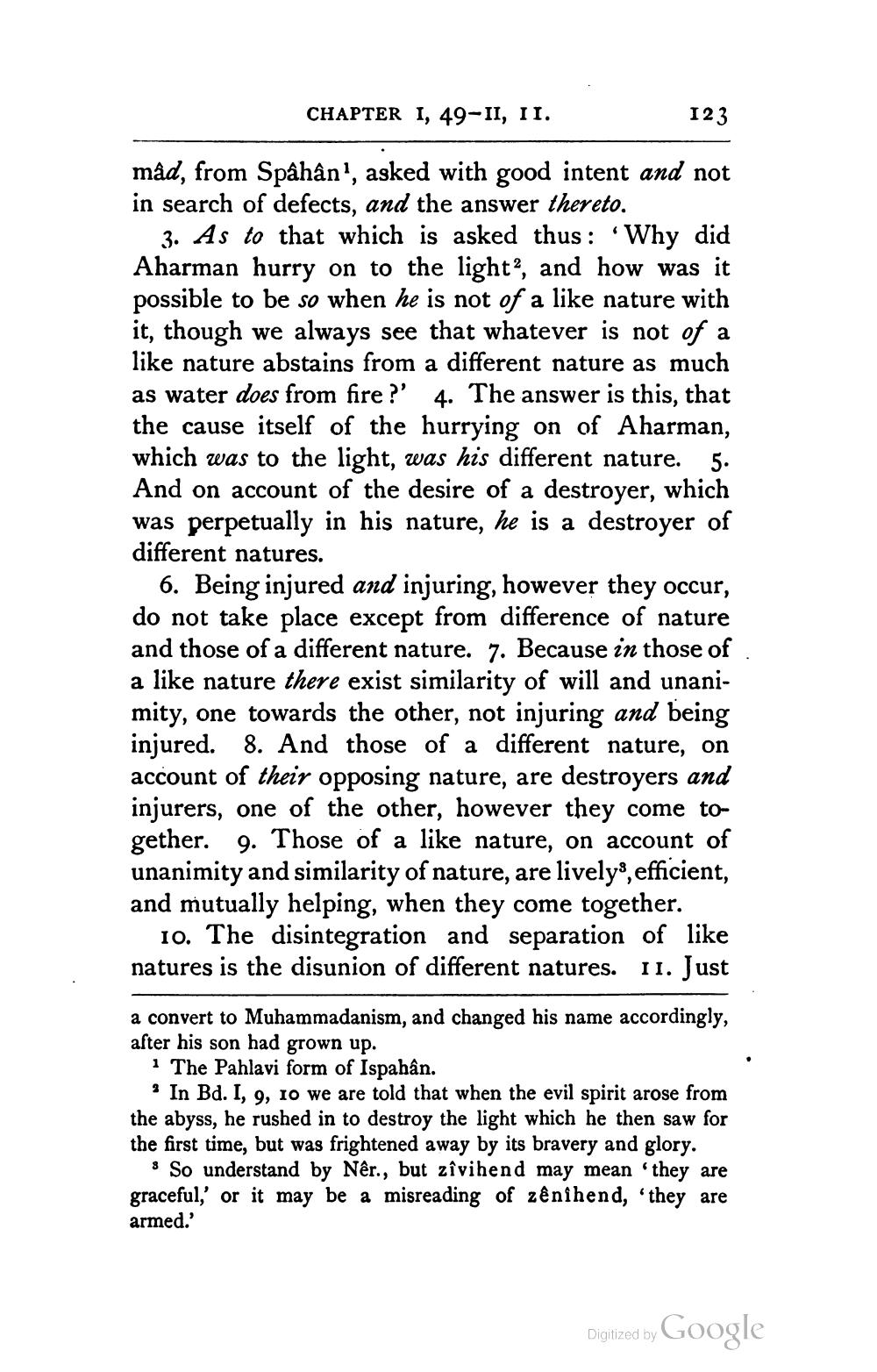________________
CHAPTER 1, 49-II, II.
123
måd, from Spâhân', asked with good intent and not in search of defects, and the answer thereto.
3. As to that which is asked thus: Why did Aharman hurry on to the light?, and how was it possible to be so when he is not of a like nature with it, though we always see that whatever is not of a like nature abstains from a different nature as much as water does from fire?' 4. The answer is this, that the cause itself of the hurrying on of Aharman, which was to the light, was his different nature. 5. And on account of the desire of a destroyer, which was perpetually in his nature, he is a destroyer of different natures.
6. Being injured and injuring, however they occur, do not take place except from difference of nature and those of a different nature. 7. Because in those of a like nature there exist similarity of will and unanimity, one towards the other, not injuring and being injured. 8. And those of a different nature, on account of their opposing nature, are destroyers and injurers, one of the other, however they come together. 9. Those of a like nature, on account of unanimity and similarity of nature, are livelys, efficient, and mutually helping, when they come together.
10. The disintegration and separation of like natures is the disunion of different natures. 11. Just
a convert to Muhammadanism, and changed his name accordingly, after his son had grown up.
The Pahlavi form of Ispahân. * In Bd. I, 9, 10 we are told that when the evil spirit arose from the abyss, he rushed in to destroy the light which he then saw for the first time, but was frightened away by its bravery and glory.
8 So understand by Nêr., but zîvihend may mean they are graceful,' or it may be a misreading of zênihend, they are armed'
Digitized by Google




